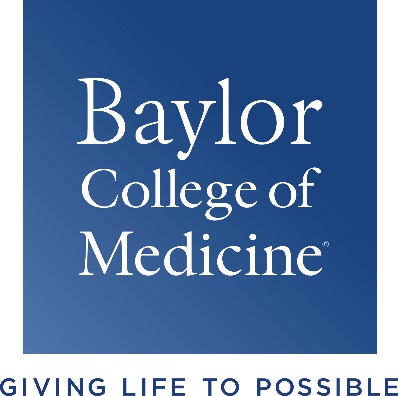Multiple Postdoc and Technician Positions Available at Baylor College of Medicine

Multiple postdoc and technician positions are available in Dr. Jin Wang's group in the Department of Pharmacology and Chemical Biology at Baylor College of Medicine (BCM).
BCM is located in the world largest medical center and has access to enormous biomedical resources. The research in the Wang lab is highly interdisciplinary and translational. The Wang lab has both chemistry and biology operations. For chemistry work, we have 17 chemical fume hoods, 4 ISCO combiflash chromatography systems, Agilent analytical LC-MS, Agilent preparative HPLC with auto-purification, and Genevac high throughput solvent evaporation, along with convenient access to 600 and 800 MHz NMR. For biology work, we have common equipment for biochemistry, molecular and cell biology, including tissue culture hoods, RT-PCR, plate reader, and imaging plate reader, and perform animal work to evaluate the efficacy of the experimental therapeutics developed in the group. In addition, we recently acquired a state-of-the-art Thermo Orbitrap Fusion Lumos Tribrid Mass Spec with UPLC and NanoLC to perform metabolomics and proteomics studies and a high-performance computing (HPC) unit with 2X Tesla V100 GPUs for omics data analysis, molecular docking and molecular dynamics studies. The lab is well-funded with multiple NIH grants, and government and industry sponsored research contracts. These recruitments are mainly sponsored by a recent major drug discovery support from NIH.
The major research directions include small molecule drug discovery, and probe and sensor development for biological applications. Our small molecule drug design program includes structured based drug design (in collaboration with Dr. Hui Zheng), targeting unstructured steroid receptor coactivators and hormone receptors (PNAS 2016, in in collaboration with Dr. Bert O'Malley), anti-aging drug development (in collaboration with Dr. Meng Wang), and recent initiative in proteolysis targeting chimeras (PROTACs, Nat Comm 2020, in collaboration with Dr. Michael Wang). Our probe development effort leads to the most widely used (>100 labs worldwide) reversible-reaction based fluorescent probe for glutathione quantification in living cells (Nat Comm 2017). Along with our colleagues, we founded biotech companies to commercialize some of these research efforts.
The goal of these recruitments is to further expand our efforts in small molecule drug discovery and streamline bioactivity and ADMET testing. The candidates will gain experience not only for cutting-edge research but also drug discovery process in a biotech-like environment. The candidates will join a dynamic interdisciplinary group and should be willing and able to communicate with people from different backgrounds, including chemistry, engineering, and biology.
如果篇首注明了授权来源,任何转载需获得来源方的许可!如果篇首未特别注明出处,本文版权属于 X-MOL ( x-mol.com ), 未经许可,谢绝转载!
































 京公网安备 11010802027423号
京公网安备 11010802027423号